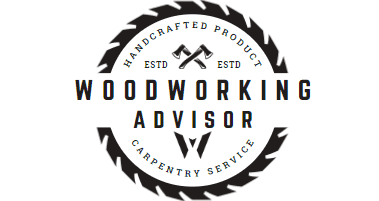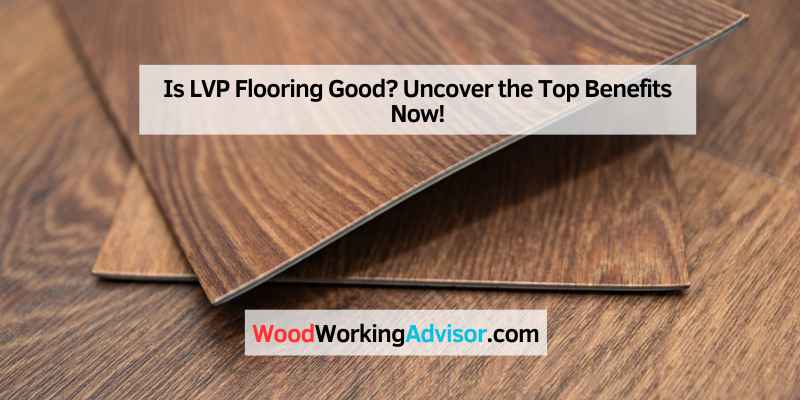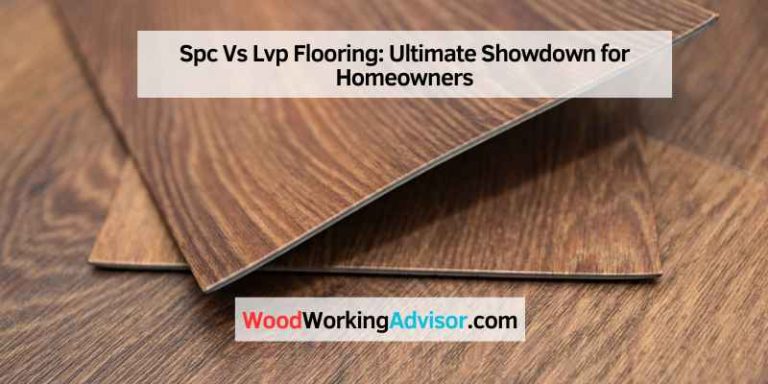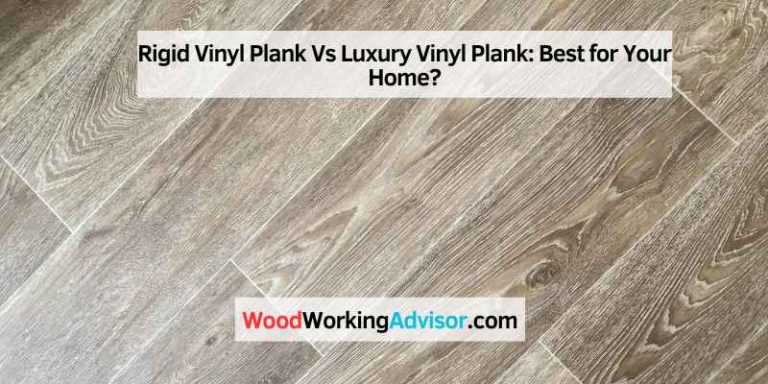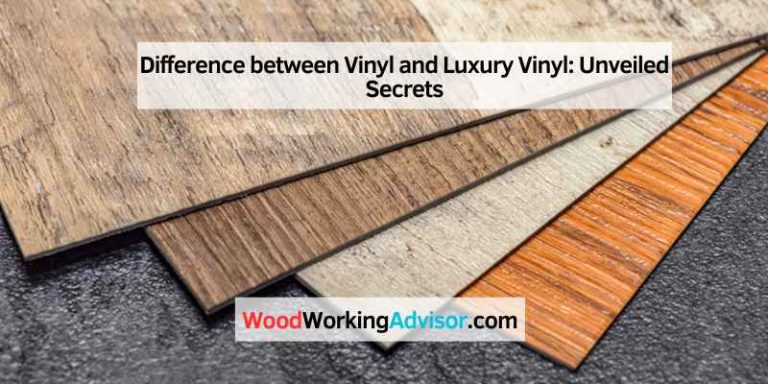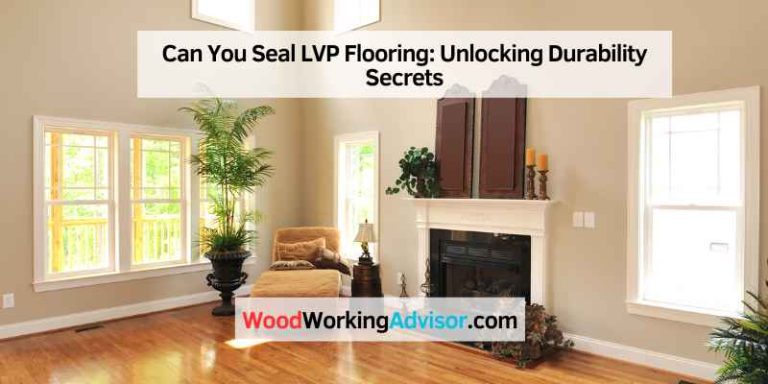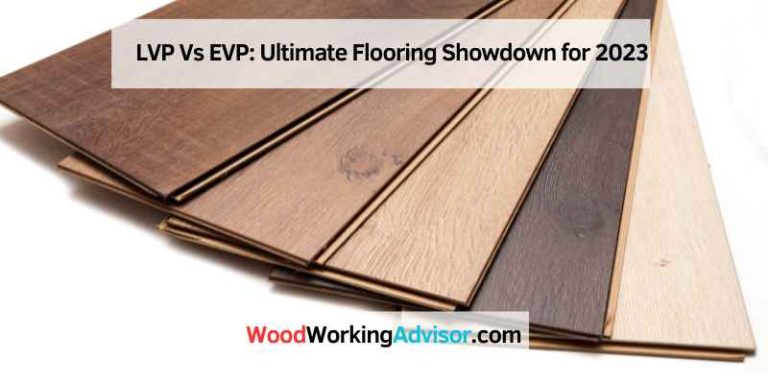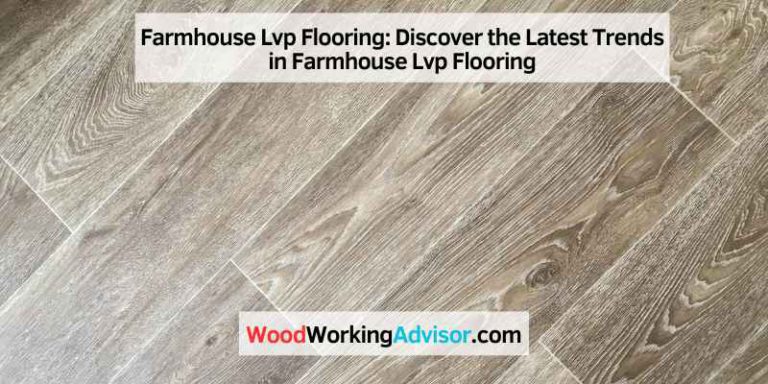Is LVP Flooring Good? Uncover the Top Benefits Now!
LVP flooring is durable and affordable. It offers a realistic wood look with easy maintenance.
LVP, or Luxury Vinyl Plank, flooring has surged in popularity due to its blend of style and practicality. This type of flooring mimics the appearance of hardwood but comes at a fraction of the cost. It’s resistant to water, making it ideal for kitchens, bathrooms, and basements.
Installation is straightforward, which can save on labor costs. Homeowners appreciate its durability, as it can withstand heavy foot traffic and resist scratches and dents. LVP flooring also offers a variety of designs and colors, allowing for customization to match any decor. Its low maintenance requirements make it a convenient choice for busy households.
Introduction To Lvp Flooring
Luxury Vinyl Plank (LVP) flooring has become a popular choice for many homeowners. This type of flooring mimics the look of hardwood. It offers durability and ease of maintenance. LVP flooring is also budget-friendly. This makes it an attractive option for families and businesses alike.
The Rise Of Luxury Vinyl Plank
LVP flooring has seen significant growth in recent years. The advancements in technology have improved its appearance. It now closely resembles natural wood. People love it for its versatility and affordability. LVP flooring fits well in any room. It is also water-resistant, making it ideal for kitchens and bathrooms.
Comparing Lvp To Other Flooring Options
| Feature | LVP Flooring | Hardwood Flooring | Laminate Flooring |
|---|---|---|---|
| Cost | Low to Moderate | High | Low |
| Durability | High | Medium | Medium |
| Water Resistance | High | Low | Low |
| Maintenance | Easy | High | Medium |
| Installation | DIY-Friendly | Professional | DIY-Friendly |
Comparing LVP to other flooring options highlights its benefits. LVP is more affordable than hardwood. It is also more durable than laminate. Additionally, its water resistance makes it a strong contender for any home. Installation is straightforward and can often be done as a DIY project.
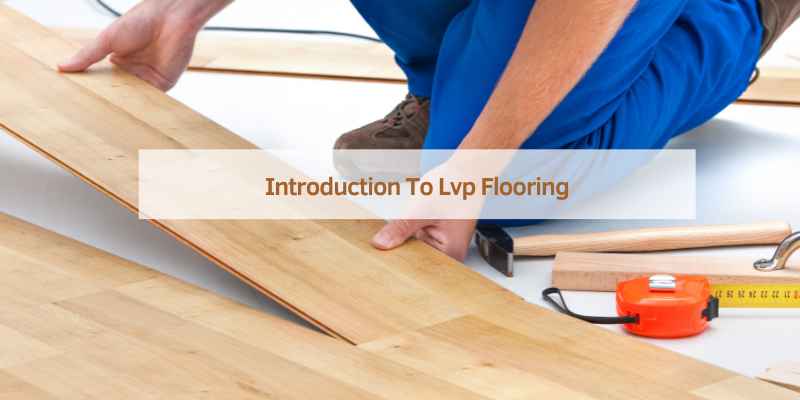
Durability And Longevity
Luxury Vinyl Plank (LVP) flooring is known for its remarkable durability and longevity. This type of flooring has become a popular choice for homeowners due to its ability to withstand the test of time. Let’s explore the key factors that contribute to the durability and longevity of LVP flooring.
Scratch And Wear Resistance
LVP flooring is designed to be scratch-resistant. It can handle the wear and tear of daily life. This makes it a perfect option for homes with pets and children. The top layer of LVP floors is usually coated with a strong protective layer. This helps to prevent scratches and scuffs.
The wear layer plays a crucial role in maintaining the floor’s appearance. It keeps the floor looking new for many years. This layer varies in thickness. Thicker wear layers provide better protection and last longer.
Life Expectancy Of Lvp Floors
LVP flooring has an impressive life expectancy. On average, it can last between 10 to 20 years. This depends on the quality of the product and how well it is maintained.
To ensure your LVP floors last as long as possible, follow these tips:
- Clean spills immediately to prevent stains.
- Sweep or vacuum regularly to remove dirt and debris.
- Use floor protectors under furniture legs to avoid dents.
- Avoid using harsh chemicals for cleaning.
Following these simple steps can significantly extend the life of your LVP flooring. It ensures you get the most out of your investment.
Design Versatility
LVP flooring is a top choice for many homeowners. It offers unmatched design versatility. With LVP, your floors can look like wood, stone, or other natural materials. This makes it easy to fit any home’s decor.
A Range Of Styles And Finishes
LVP flooring comes in a wide range of styles and finishes. You can choose from rustic to modern designs. The finishes can be smooth, textured, or even hand-scraped. This variety ensures that there is a perfect match for every room.
| Style | Description |
|---|---|
| Rustic | Features a weathered look with rich textures |
| Modern | Sleek and smooth with clean lines |
| Traditional | Classic wood patterns with a timeless appeal |
Mimicking Natural Materials
LVP flooring can mimic natural materials like wood and stone. It is designed to look very realistic. The textures and patterns are crafted to imitate real materials. This gives your home a natural feel without the high cost.
- Wood-look LVP: Features grains and knots like real wood.
- Stone-look LVP: Imitates the look of marble or slate.
- Tile-look LVP: Resembles ceramic or porcelain tiles.
Choosing LVP flooring allows you to enjoy the beauty of natural materials. It is also more durable and easier to maintain. This makes it a smart choice for busy households.
Ease Of Installation
Choosing the right flooring can transform your home. Luxury Vinyl Plank (LVP) flooring is not only stylish but also easy to install. Let’s explore how its installation process can suit both DIY enthusiasts and professional installers.
Diy-friendly Installation Process
LVP flooring is perfect for those who love DIY projects. You don’t need special tools. All you need is a utility knife, a tape measure, and a straight edge. Here’s a simple step-by-step guide:
- Prepare the subfloor: Ensure it is clean, dry, and level.
- Measure the room: Calculate the total square footage. This helps you buy the right amount of LVP.
- Acclimate the planks: Let the planks sit in the room for 48 hours. This helps them adjust to the room temperature.
- Start laying the planks: Begin from the corner of the room. Use spacers to maintain a small gap between the planks and the wall.
- Cut the planks: Use a utility knife to cut the planks to fit around corners and edges.
- Finish the installation: Remove the spacers and install baseboards.
Professional Installation Insights
If DIY is not your style, professional installation is a great option. Professionals have the experience and tools to ensure a flawless finish. Here are some benefits:
- Time-saving: Professionals can complete the job quickly.
- Expertise: They know how to handle tricky areas and ensure a perfect fit.
- Warranty: Many professionals offer a warranty on their work.
Here’s a comparison table to help you decide between DIY and professional installation:
| Aspect | DIY Installation | Professional Installation |
|---|---|---|
| Cost | Lower | Higher |
| Time | Longer | Shorter |
| Skill Level | Basic | Advanced |
| Finish Quality | Good | Excellent |
Cost-effectiveness
When considering new flooring options, cost-effectiveness is a crucial factor for many homeowners. Luxury Vinyl Plank (LVP) flooring stands out for its balance between cost and value. This section delves into its financial benefits.
Initial Costs Vs. Long-term Value
Initially, LVP flooring is less expensive than hardwood or stone. The installation process is also simpler, which reduces labor costs. Over time, LVP flooring offers long-term value due to its durability and minimal maintenance needs. Unlike carpets that require frequent cleaning, LVP flooring maintains its appearance with little effort. This leads to savings on cleaning and repair costs.
Price Comparison With Other Flooring
| Flooring Type | Initial Cost per Sq. Ft. | Maintenance Cost per Year |
|---|---|---|
| LVP Flooring | $2 – $7 | $50 |
| Hardwood | $5 – $15 | $200 |
| Carpet | $3 – $6 | $100 |
| Tile | $4 – $12 | $150 |
When comparing costs, LVP flooring emerges as a cost-effective option. It offers lower initial and maintenance costs. This makes it a popular choice for budget-conscious homeowners.
- Initial cost: LVP flooring is generally cheaper to buy and install.
- Durability: LVP floors last long, reducing the need for replacements.
- Maintenance: Requires less upkeep compared to other flooring types.
These factors make LVP flooring a smart investment for any home.
Comfort And Insulation
LVP flooring is popular for many reasons, including its comfort and insulation. Homeowners love how it feels underfoot and its ability to keep rooms warm. Let’s explore these benefits in detail.
Softness Underfoot
LVP flooring is soft underfoot. This makes it comfortable to walk on, especially for kids and the elderly. The softness comes from its multi-layer construction, which includes a cushioned core. This core provides a slight give, making each step pleasant and easy.
Unlike hardwood or tile, LVP does not feel hard or cold. It’s perfect for rooms where you stand a lot, like kitchens. It reduces foot fatigue, making long hours of standing more bearable.
Insulating Properties Of Lvp
LVP flooring is excellent at insulation. This means it helps maintain room temperature, keeping your home warm in winter and cool in summer. The layers in LVP trap air, which acts as an insulator.
Installing LVP can also help reduce your energy bills. Better insulation means your heating and cooling systems don’t work as hard. This is good for both the environment and your wallet.
Here is a table summarizing the insulating properties of LVP:
| Property | Benefit |
|---|---|
| Air Trapping Layers | Keeps room temperature stable |
| Cushioned Core | Reduces foot fatigue |
| Energy Efficiency | Lower energy bills |
In summary, LVP flooring offers both comfort and insulation. Its softness makes it pleasant to walk on, while its insulating properties help maintain a comfortable home environment.
Maintenance And Cleaning
LVP flooring is known for its durability and ease of care. Proper maintenance keeps it looking new for years. Regular cleaning routines and some simple tips can help maintain its beauty.
Simple Cleaning Routine
LVP flooring requires minimal maintenance. Follow these steps for a simple cleaning routine:
- Sweep or vacuum the floor daily to remove dust and dirt.
- Use a damp mop with a mild cleaner weekly.
- Dry the floor immediately after mopping to prevent water spots.
Tips For Keeping Lvp Looking New
To maintain the new look of LVP flooring, consider these tips:
- Avoid harsh chemicals that can damage the surface.
- Place mats at entryways to catch dirt and moisture.
- Use furniture pads to prevent scratches and dents.
- Clean spills immediately to prevent staining.
- Avoid dragging heavy objects across the floor.
| Task | Frequency |
|---|---|
| Sweeping or Vacuuming | Daily |
| Mopping with Mild Cleaner | Weekly |
| Drying After Mopping | Immediately |
By following these maintenance tips, your LVP flooring will remain attractive and durable. Regular care is the key to longevity and appearance.
Environmental Considerations
Environmental considerations play a crucial role in the decision-making process for many homeowners. When choosing flooring options, it’s essential to evaluate their environmental impact. Let’s delve into the eco-friendly aspects of Luxury Vinyl Plank (LVP) flooring and its sustainability and recycling potential.
Lvp’s Eco-friendly Aspects
Luxury Vinyl Plank (LVP) flooring offers several eco-friendly benefits. Many brands use recycled materials in their production. This reduces the demand for virgin resources. LVP flooring often contains low levels of volatile organic compounds (VOCs). This ensures better indoor air quality. These factors make LVP a greener choice compared to traditional flooring options.
Recycling And Sustainability
One of the significant advantages of LVP flooring is its recyclability. At the end of its life cycle, LVP can be recycled into new flooring materials. This process helps reduce waste in landfills. Some manufacturers offer take-back programs to ensure old flooring is recycled properly. This promotes a circular economy and sustainable practices.
| Eco-Friendly Aspect | Description |
|---|---|
| Recycled Materials | Reduces the need for new resources |
| Low VOCs | Improves indoor air quality |
| Recyclability | Minimizes landfill waste |
| Take-Back Programs | Encourages proper recycling |
Choosing LVP flooring means supporting sustainable practices. This can help preserve the environment for future generations.
Pros And Cons Roundup
Luxury Vinyl Plank (LVP) flooring is becoming popular. It offers a range of benefits but has some downsides too. Let’s explore the pros and cons to help you decide if LVP flooring is right for you.
Advantages At A Glance
- Durability: LVP flooring is highly durable and can withstand heavy foot traffic.
- Water Resistance: This type of flooring is water-resistant, making it perfect for kitchens and bathrooms.
- Easy Maintenance: Cleaning LVP flooring is simple. Just sweep and mop it regularly.
- Realistic Appearance: LVP mimics the look of real wood or stone very well.
- Cost-Effective: It is generally more affordable than hardwood or stone flooring.
- Comfort: LVP is softer underfoot compared to hardwood or tile.
- Installation: Many LVP products are designed for easy DIY installation.
Potential Drawbacks
- Temperature Sensitivity: LVP can expand or contract with temperature changes.
- Less Eco-Friendly: LVP is made from PVC, which is not the most environmentally friendly material.
- Scratch Susceptibility: While durable, it can still get scratched by sharp objects.
- Not as Luxurious: It may not have the same luxurious feel as natural wood or stone.
- Fading: Prolonged exposure to direct sunlight can cause some LVP to fade.
Real-world Experiences
Exploring real-world experiences can provide valuable insights into the effectiveness of LVP flooring. Homeowners and experts alike share their stories to help you make an informed decision. Let’s dive into their experiences.
Testimonials From Homeowners
Many homeowners have shared their positive experiences with LVP flooring. Their feedback helps others understand the benefits and challenges of this flooring option.
- Jane from Texas: “LVP flooring transformed our living room. It’s durable and easy to clean.”
- Mike from California: “Our kids and pets put LVP to the test daily. It still looks new!”
- Emma from Florida: “We chose LVP for its water resistance. Perfect for our bathroom.”
Case Studies: Before And After
Seeing before and after images can highlight the dramatic impact of LVP flooring. Let’s look at a few case studies.
| Case Study | Before | After |
|---|---|---|
| Living Room Upgrade | Worn-out carpet, stains | Sleek LVP, modern look |
| Kitchen Renovation | Old tiles, cracks | Waterproof LVP, fresh feel |
| Basement Transformation | Concrete floor, cold | Warm LVP, inviting space |
These real-world experiences showcase the versatility and durability of LVP flooring. It adapts well to various environments and withstands daily wear and tear.
Making The Decision
Choosing the right flooring for your home is a big decision. There are many factors to consider, such as durability, cost, and style. This section will help you decide if Luxury Vinyl Plank (LVP) flooring is the right choice for you.
Assessing Your Flooring Needs
Start by assessing your flooring needs. Think about how much foot traffic your floors will endure. High-traffic areas like kitchens and hallways need durable flooring. Pets and children can also influence your flooring choice.
Next, consider your budget. LVP flooring is often more affordable than hardwood or tile. Make sure to factor in installation costs too. Ease of installation can save both time and money.
Lastly, think about the style of your home. LVP comes in many designs and colors. You can find options that mimic wood, stone, and even ceramic tiles. Matching your home decor is easy with LVP flooring.
Why Choose Lvp Flooring
There are many reasons to choose LVP flooring. Here are some key benefits:
- Durability: LVP is resistant to scratches, dents, and water.
- Affordability: It’s often cheaper than hardwood or tile.
- Easy Maintenance: Simple to clean with just a mop and mild cleaner.
- Variety of Styles: Mimics wood, stone, and ceramic looks.
- Comfort: Softer underfoot compared to tile or stone.
Let’s delve deeper into these benefits:
| Benefit | Description |
|---|---|
| Durability | LVP is ideal for high-traffic areas. It withstands daily wear and tear. |
| Affordability | LVP offers a high-end look without the high-end price tag. |
| Easy Maintenance | Cleaning LVP is quick and easy. It requires minimal upkeep. |
| Variety of Styles | You can find LVP in various designs. There’s a style for every home. |
| Comfort | LVP is softer and warmer underfoot than tile or stone. It’s comfortable to walk on. |
Choosing LVP flooring can be a smart decision. It offers a blend of durability, affordability, and style.
Final Thoughts
Luxury Vinyl Plank (LVP) flooring has gained immense popularity. This type of flooring offers many benefits. It is both stylish and practical. Before making a decision, consider some final thoughts on LVP flooring.
The Future Of Lvp Flooring
LVP flooring is here to stay. Its durability and ease of maintenance make it a top choice. As technology advances, LVP will continue to improve. You can expect even more realistic designs and textures. This flooring type will keep evolving.
Many homeowners and businesses choose LVP flooring. It fits in various settings, from homes to offices. The future of LVP looks bright and promising.
Is Lvp Right For Your Home?
Before deciding, consider your needs and lifestyle. LVP flooring is water-resistant. This makes it great for kitchens and bathrooms. It is also pet-friendly and perfect for families. Kids and pets can be tough on floors, but LVP handles it well.
Think about your home’s style. LVP comes in many designs and colors. You can find a match for any decor. Whether you like modern or classic looks, there is an LVP option for you.
Here are some key points to consider:
- Durability: LVP is long-lasting and can handle heavy foot traffic.
- Maintenance: It is easy to clean and requires little upkeep.
- Installation: LVP is simple to install, often as a DIY project.
- Cost: It is more affordable than hardwood but offers a similar look.
Use this table to compare LVP with other flooring options:
| Feature | LVP | Hardwood | Carpet |
|---|---|---|---|
| Water-Resistance | High | Low | Low |
| Durability | High | Medium | Low |
| Maintenance | Easy | Moderate | High |
| Cost | Moderate | High | Low |
LVP flooring offers many advantages. It is a versatile and cost-effective choice for any home. Consider all factors before making your final decision.
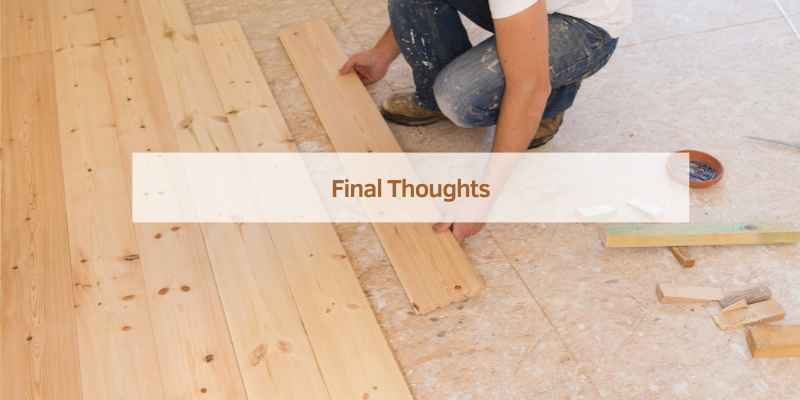
Frequently Asked Questions
What Is The Downside Of Lvp Flooring?
LVP flooring can be prone to scratches and dents. It may also emit VOCs, affecting indoor air quality.
Is Lvp Good For High End Homes?
Yes, LVP is great for high-end homes. It offers durability, elegance, and a wide range of styles.
How Long Do Lvp Floors Last?
LVP floors typically last 10-20 years. Proper maintenance can extend their lifespan. They are durable and cost-effective.
What Flooring Is Better Than Lvp?
Hardwood flooring often surpasses LVP in durability and resale value. It offers a timeless, natural look.
Conclusion
LVP flooring offers durability, affordability, and style. It’s a great choice for both homes and businesses. Easy maintenance and water resistance make it ideal for busy households. With various designs available, you can find the perfect match for your decor.
Consider LVP flooring for a practical and stylish upgrade.
